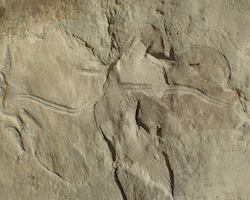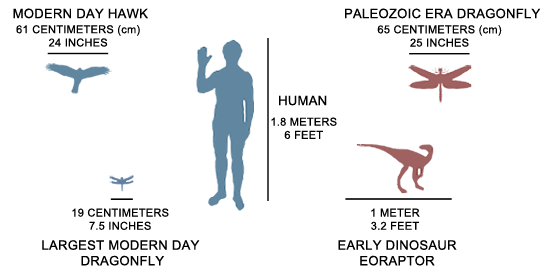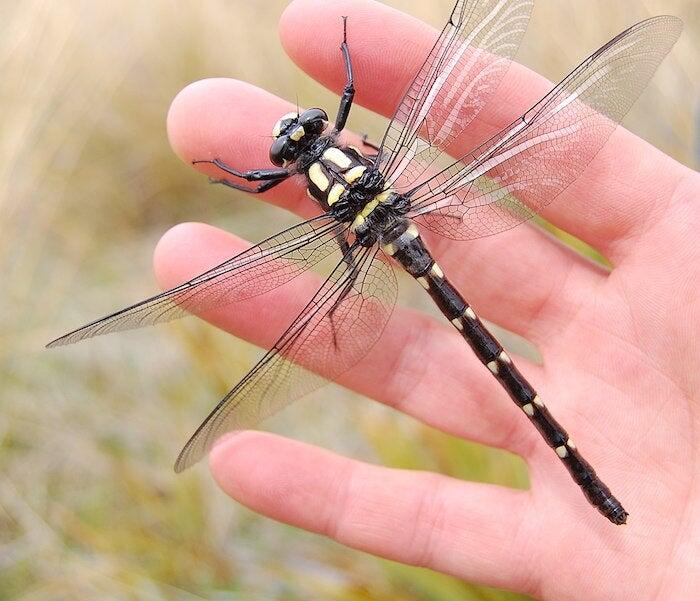
Oxygen and Animal Evolution
Today, the oxygen in our atmosphere is used by most forms of life. When we focus on multi-cellular animals, we find that oxygen is crucial to their success. Because of this, there’s a debate about which came first: animals, or oxygen?
 Even though there have been small amounts of oxygen in Earth’s atmosphere for over 2 billion years, for most of that time, it was probably less than 0.1% of the entire atmosphere. Many scientists don’t think it’s a coincidence that the first animal fossils appear in the rock record when oxygen began increasing 500-800 million years ago. They think that before animals could evolve, there first needed to be lots of oxygen to breathe. There aren’t many fossils older than 500 million years old, which makes it hard to tell if the first animals needed lots of oxygen.
Even though there have been small amounts of oxygen in Earth’s atmosphere for over 2 billion years, for most of that time, it was probably less than 0.1% of the entire atmosphere. Many scientists don’t think it’s a coincidence that the first animal fossils appear in the rock record when oxygen began increasing 500-800 million years ago. They think that before animals could evolve, there first needed to be lots of oxygen to breathe. There aren’t many fossils older than 500 million years old, which makes it hard to tell if the first animals needed lots of oxygen.
There are many unicellular organisms alive today that don’t require oxygen, and many organisms can be found living in low oxygen environments. But, the success of animals as a group, and even animal size, seems to be related to levels of oxygen. About 300 million years ago, there was an increase in oxygen levels to about 35%. During this time, animals such as insects often evolved to be larger—there were dragonflies the size of hawks!

So even though we don’t have to worry much about our oxygen levels changing in the near future, we should remember that an important part of our success as animals is due to oxygen in the atmosphere.
Additional images via Wikimedia Commons. Giant mountain dragonfly image by Warren Chinn.

Dragonflies and some other insects used to be much larger than they are today. Scientists think this is partly because there were higher levels of oxygen in the air at the time.
Be Part of
Ask An Earth and
Space Scientist
By volunteering, or simply sending us feedback on the site. Scientists, teachers, writers, illustrators, and translators are all important to the program. If you are interested in helping with the website we have a volunteers page to get the process started.
